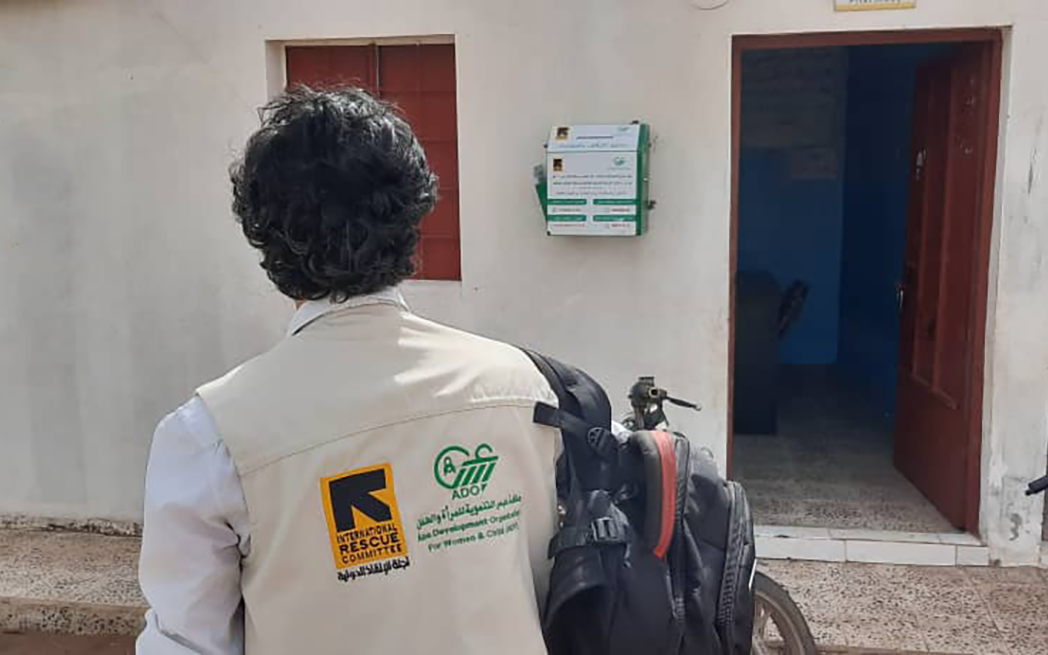
The Monitoring, Evaluation, Accountability, Research and Learning Unit at the Abs Development Organization for Women and Children is essential to all its tasks to verify the quality of project activities and to collect reports and documents confirming that activities have been implemented with high quality. Therefore, these documents are considered confidential means of verifying indicators, as they contain information on the beneficiaries and targets of each project activity. The most important follow-up activities in the organization include:
• Coordinating with the project team to ensure that activities related to this indicator are included in the project plan.
• Preparing criteria for implementing the various activities according to the project proposal.
• Holding a meeting with the project manager and staff, introducing them to the criteria required for implementing each activity and providing them with a copy of the criteria.
• Preparing various report forms for each project activity and a list of documents attached to each report, such as statistics collection tables, and submitting them to project staff.
• Compiling and reviewing reports and ensuring that the number of beneficiaries and targets is fully documented and distributed by gender, age, and geographic area.
• Compiling statistics for beneficiaries on a weekly and monthly basis. • Tracking the progress of activities and indicators on a monthly basis. • Tracking the level of achievement of indicators on a monthly basis.
• Field visits to ensure activity implementation and adherence to quality and targeting standards.
• Attending various events and activities to ensure quality implementation according to standards and providing feedback to the project team on positive and negative observations, proposing appropriate solutions.
• Archiving reports and their attachments for all activities electronically and on paper, ensuring the availability of all indicator-specific verification tools, as stated in the project’s logical framework.
A set of tasks and activities carried out by project staff within the organization before, during, and after the implementation of studies or evaluations that provide clear answers to indicators. The most important evaluation activities include:
• Preparing and implementing evaluations by an external party.
• Preparing the evaluation’s terms of reference.
• Announcing the need for a consultant online or sending the terms of reference to qualified and accredited consulting firms accredited by the organization to request proposals for implementing the consultancy.
• Forming a committee to analyze the submitted proposals according to the terms of reference, timeframe, budget, and quality standards.
• Participate in the competitive selection of a consultant or consulting firm to conduct this evaluation.
• Contract with the consultant or consulting firm.
• Review and approve the preparatory report for the evaluation or study, along with data collection tools such as questionnaires and other tools.
• Coordinate with the consultant in the field during data collection.
• Review the draft evaluation report and approve the final version of the evaluation. The most important types of evaluations conducted by the organization before, during, and after project implementation at Abs Development Organization are:
• Needs Assessment
• Baseline Survey
• Post-Distribution Monitoring (PDM)
• Mid-Term Review
• Final Review/Final Evaluation
• End-Line Survey
• Impact Assessment
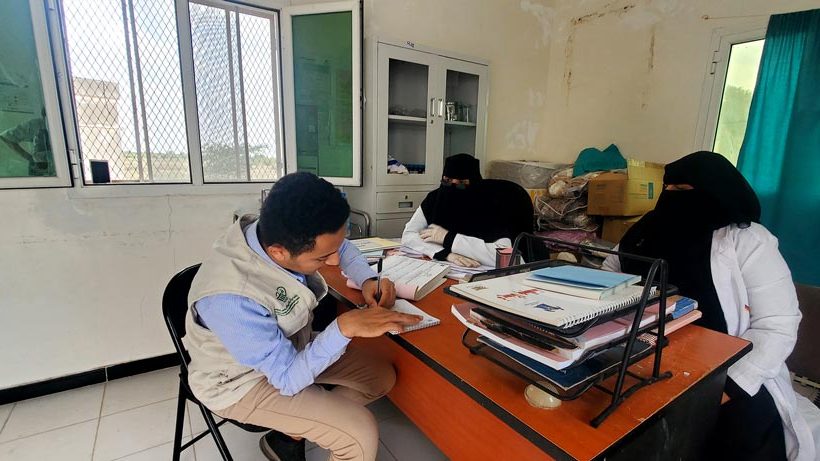
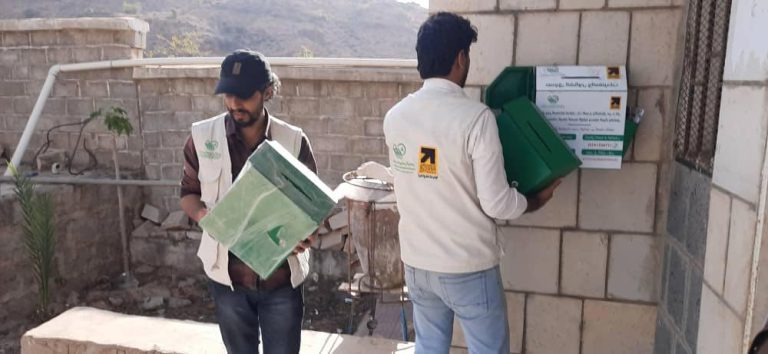
Accountability in the organization means defining the obligations and responsibilities—whether legal, social, ethical, or political—of all stakeholders in education, demonstrating their fulfillment of their responsibilities, and requiring them to provide information thereon.
• Establishing a complaints and feedback mechanism for the project that is appropriate to the geographical conditions of the target areas and the type of intervention, and ensuring that beneficiaries are aware of this mechanism.
• Receiving and recording complaints daily, analyzing them, and providing feedback to management and beneficiaries.
• Documenting the complaints and feedback list on a weekly or monthly basis.
• Regular discussions with the project team on how to improve services provided based on complaints and suggestions from beneficiaries and service providers.
• Telephone contact with random samples of beneficiaries from each activity, service, or distribution.
• Ensure the appointment of a complaints officer on each distribution committee, then communicate with them to collect complaints and provide feedback.
• Print banners with instructions, standards, and notifications that assistance is free.
• Print the complaint number on each printed material delivered to beneficiaries.
ADO is committed to collecting information that helps them research projects. Therefore, all monitoring and evaluation activities are implemented as part of research activities aimed at identifying projects based on distinguished research methods to identify the underlying problems and suffering in Yemeni society. The organization’s research aims to improve current and future management of outputs, outcomes, and impact, and helps improve performance and achieve the desired results of projects. Research status is also updated continuously and in real-time, based on the progress of project research.
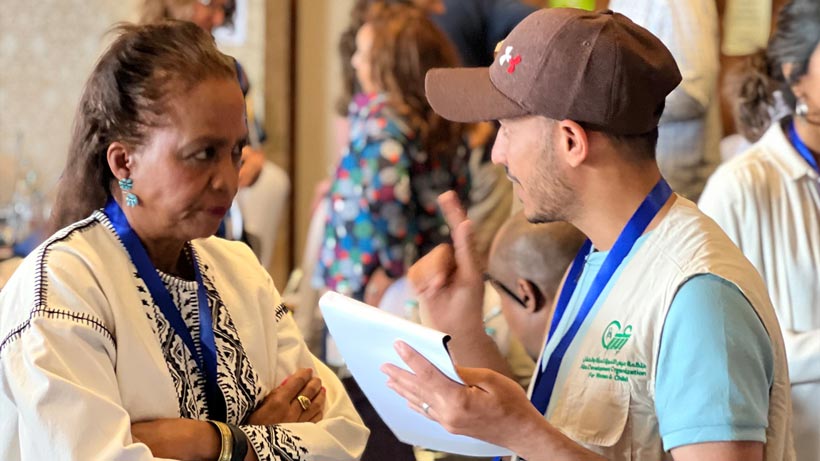
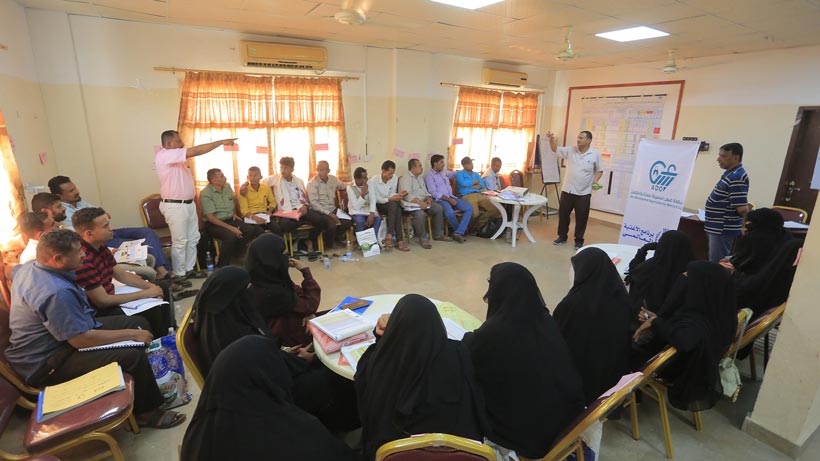
ADO is committed to gathering information that helps them learn from their projects. Therefore, all monitoring and evaluation activities are implemented as part of learning activities. Learning activities that must be implemented in all projects include:
• Preparing and documenting human and success stories, publishing them, and sharing them with stakeholders and donors.
• Documenting lessons learned from the project.
• Documenting the risks faced by the project and how the project team successfully addressed them, and including them in the mid-term and final project reports.
• Sharing lessons learned, risks, and methods for addressing them with the organization’s leadership, relevant departments, and project proposal writers to avoid them in future project plans. Learning activities from evaluations conducted by an external party include:
• Preparing appropriate responses and comments from project management on the evaluation report.
• Preparing a learning plan: How will the recommendations contained in the evaluation report be utilized?
• Holding a meeting by the project team.
